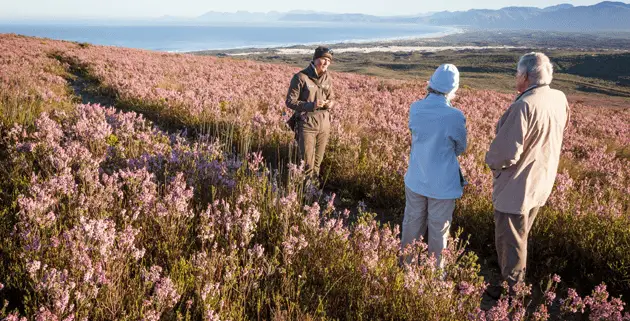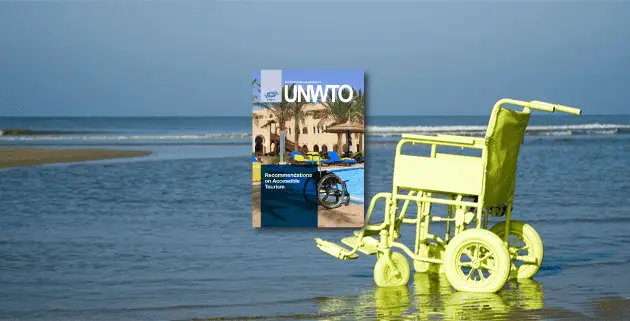A Guide to Cultural Tourism
Cultural tourism, or culture tourism as it is sometimes called, is a type of niche tourism that attempts to represent the stories and lifestyles of the people from the past and in the present authentically. As such, it places particular focus on art, architecture, religion, food, clothing and anything else that may have contributed to shaping a group of people’s way of life. By Yvonne Nhuta.
This kind of tourism normally occurs in urban areas with particular historical significance or cultural facilities, such as museums and theatres. Cultural tourism also highlights the various traditions of indigenous communities through observing their rituals, customs as well as their values and lifestyle. Tourism, therefore, serves as the carrier of culture and cultural tourism has become the platform for cultural consumption.
As a powerful tool for economic development, tourism is responsible for jobs, providing new business opportunities and strengthening local economies. When cultural tourism is done effectively it can aid in securing an area’s natural and cultural resources, while improving the quality of life for residents and visitors.
One of the main ideas behind this kind of niche tourism is that people should be able to save their heritage and culture while sharing it with visitors and reaping the economic benefits of tourism.
Getting started
Ideally, most regions engaging in cultural tourism can benefit greatly from it. New businesses, more jobs and higher property values are just some of the advantages of investing in cultural tourism.
Getting a handle on this type of tourism will require initially contemplating the availability of resources such as arts organisations, festival organisers and arts venues which can be used in attracting visitors.
Some of the things you will need to consider include your location, timing, the potential visitor profile, what the tourists want to see and exactly what you want to achieve.
Once you have pooled together all your resources, you can establish what sorts of attractions your area is prepared to offer potential tourists. This can range from art festivals to museum showcases depending on how wide and how solid your area’s resources are.
Then, you need to ensure that you have advertised the event or site, leaving enough time for potential tourists to plan their visits. Peak times include major seasonal holidays and periods that coincide with other national events.
As the number of people coming and going out of the region will increase, there will be increased demands on the infrastructure.
Consequently, before attracting visitors, the roads, airports, water supplies and other public services like police and fire departments will need to be ready for this.
Another thing to bear in mind is what your visitors are expecting as they make their way to your region or come and see your community. It’s necessary to ensure that you are genuinely able to provide the tourists with what you have promised in any marketing schemes. Failure to do so can result in major losses in business as you may find it difficult to meet the visitors’ expectations of quality products and services.
Before attempting to market or advertise anything, it is important to know exactly what kind of tourist you are aiming to attract. This entails creating a visitor profile,
Letting it be known
Essentially, cultural tourism works to satisfy the need to discover. It could be a new wine region or ancient artefacts, but cultural tourists travel because they feel the need to explore something that is completely unknown to them.
Because they are travelling for the sheer experience and not merely because they happen to have vacation time, these tourists are usually willing to spend more money and travel more often. In addition to this as people work together to create a functional tourism industry a sense of community pride is established. This occurs as tourists get to see and explore various destinations in genuine and authentic ways.
Nowadays, people do research before they plan and book a trip or holiday. Therefore, it is can tap into to find out more about what you have to offer. Being online is a great way to make sure people have a point of reference. Ensuring that you are easy to find and that your chosen method of advertising is easy to navigate, will create a good initial impression of whatever it is you are offering to your potential visitors. An online presence can increase the chances of your event or location being seen by a large number of people. Other ways to advertise include flyers and posters at local hotels, cafes and restaurants.
Growing with the area
Local priorities generally differ with every region, which is why circumstances determine what each area can achieve with regards to cultural tourism. The programmes or venues that you may choose to offer a group of tourists need to, therefore, be realistic in relation to the resources available to you.
How a region is marketed will depend on what kind of attractions are marketable, the talents of specific people and whether the accommodation is readily available. In today’s society, creative industries are being channelled to promote destinations and events while enhancing the competitiveness and attractiveness of the regions.
As a local participating in the cultural tourism industry, you will need to ensure that you give tourists authentic representations of your histories and traditions.
A significant challenge facing cultural tourism is the task of preserving
and protecting the actual culture that serves as a tourist attraction. It is important to protect the buildings, landscape or special places and qualities that can attract visitors.
Another reason for this is the fact that local communities that would most likely be struggling economically can find financial support through maintaining and showing off their cultural assets. Locally, the participation of generally marginalised South Africans in the development of the tourist industry will afford them the chance to create businesses that can ensure the generation of income through tourist sales.
Taking on the challenge
One of the most notable setbacks faced by communities venturing into cultural tourism is the potential for exploitation of their area’s cultural assets.
Destroying these assets will, in fact, destroy the very things that attract the visitors in the first place. This is why collaboration plays a major role in cultural tourism.
Regional partnerships allow for the development of themes, the pooling of resources and saving of money as the market potential expands.
The active participation of political leaders, business leaders, operators of tourist sites, artists and craftspeople can result in very successful cultural tourism, as each sector of the community is given a chance to put its stamp on how their area is represented.
The part-time University of Cape Town Tourism Management short course is presented online throughout South Africa. For more information visit getsmarter.co.za.



